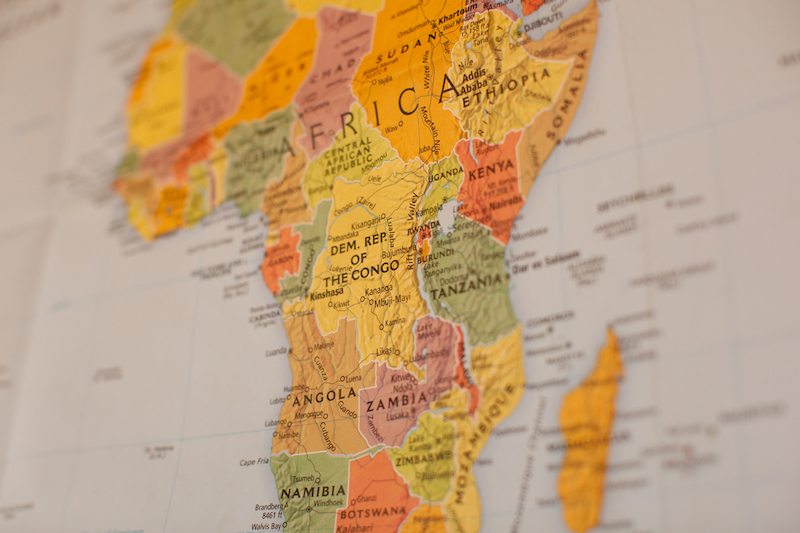Zambia is a so-called Christian nation, and many believers accept an adulterated form of Christianity.
Only 5 percent of this south African nation is unreached by the gospel, according to Operation World. This statistic reflects more than 150 years of missionary efforts in Zambia, but numbers don’t tell the whole story. Many among the 95 percent considered “Christian” engage in unbiblical practices, participating in either ethnic or cultic religious activities.
Luke Buleya is pastor of Chikondi Baptist Church in Zambia’s capital city, Lusaka, and a former executive secretary of the Baptist Fellowship of Zambia. He attributes the inconsistency to false religious influences dotting the spiritual landscape—ancient cult traditions, Jehovah’s Witnesses, and prosperity theology.
In his training of church leaders throughout southeastern Zambia, Buleya notes a shortage of biblically sound resources. Pastors have no trouble presenting Christianity, he says, but without theological understanding they often falter in the face of opposition regarding the exclusivity of the gospel. “Traditional African upbringing permits dabbling in anything spiritual,” he explains, “and it forbids forsaking ancestral rituals and worship.”
Three Main Foes
Although missionaries have targeted false religious activities since the colonial period, Zambians continue to participate openly in a number of events celebrating Nyau, a religious cult in southern Africa. International cultural preservation and tourism groups encourage Nyau ritual practices, which Christians embrace as part of their heritage.
The Jehovah’s Witnesses are another religious organization popular in this region. The cult gains influence through broadly distributing its free magazine, The Watchtower. Iwell Phiri is a pastor of Golgotha Baptist Church in rural Sinda and oversees more than 50 church leaders in a 500-kilometer radius. “They spread their materials everywhere—in offices, on benches, from door to door,” he says.
The third deception in Zambia’s spiritual minefield—the prosperity movement—lends credibility to the country’s ancestral traditions by borrowing from their cultic practices. Buleya says thousands watch televised programs to hear “prophesies” of blessings that are soon to come their way, or that they’re not prospering due to a curse. These self-proclaimed prophets are similar “to witchdoctors,” Buleya explains, lamenting the use of pagan elements in worship services conducted in the name of Christ.
Defusing Deception
Tourist-driven fascination with pagan worship, the proliferation of Jehovah’s Witness materials, and the upsurge in prosperity teaching demand a renewed focus in pastoral training. These destructive forces also highlight the need for strong theological support.
Clair Ziolkowski, founder of Beautiful Feet Ministries in Canada, said Buleya functions as his “man on the ground” by coordinating distribution of Bibles and theological resources to Zambian pastors and church leaders.
In January 2016, Ziolkowski delivered several pallets of materials to Zambia, including Packing Hope books for Christian leaders from TGC International Outreach (TGC IO). His visit included a stop at the International Bible College in Lusaka, where dean of students Bernard Mwepu assigns class readings from resources such as Thabiti Anyabwile’s Finding Faithful Elders and Deacons, David Helm’s Expository Preaching, and R. C. Sproul’s Everyone’s a Theologian.
One student at the college, Oscar Kayombo, sensed something amiss in the prosperity teaching he’d grown up hearing. “There was no explanation of the Bible, just an emphasis that being a Christian was the way to get what you wanted.” Kayombo’s eyes were opened while reading Everyone’s a Theologian: “If this book had been available to pastors in my country years ago, we might have avoided many troubles over false teaching.”
Zambia’s rural areas also benefit from access to sound theological resources. TGC IO resources are part of a new satellite training program for remote students with financial constraints or pastoral responsibilities that keep them from attending classes. The materials strengthen the ministries of village pastors, Mwepu said: “We train one leader in a village church, and he is able to shepherd that church and increase understanding in the whole congregation.”
Buleya reports that Packing Hope materials are entering villages where people believe The Watchtower has the same authority as the Bible. “Now they have solid doctrinal material to diffuse deceptive influences,” he said.
Redundant Rituals
Both Buleya and Phiri have seen believers’ lives changed, by God’s grace. “Many are sticking to the Word,” Phiri said. “They don’t care what the false teachers are telling them.”
Entire congregations are now reminded that, in Christ, the old man is gone and the new has come (2 Cor. 5:17). This helps Zambian believers understand that rituals to rid themselves of evil spirits are unnecessary, Buleya said, “and they abandon them.”
